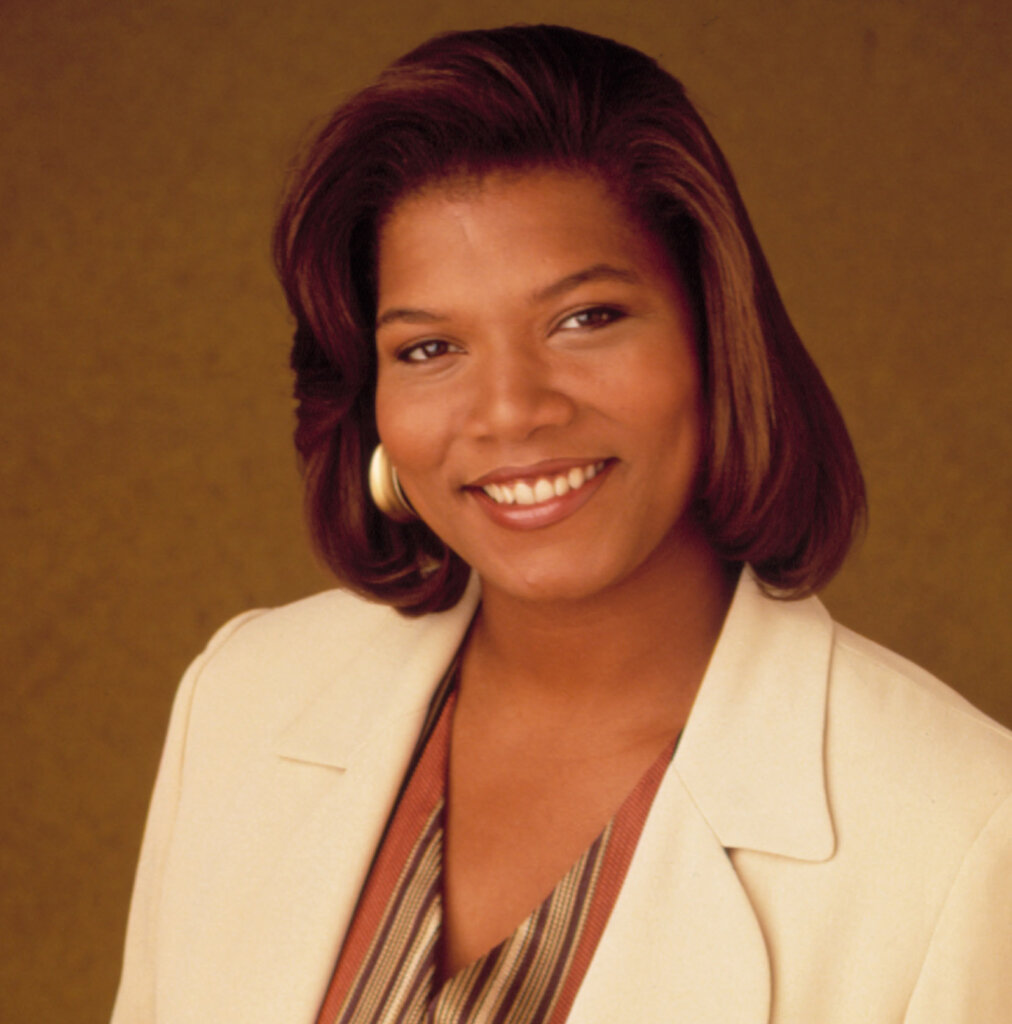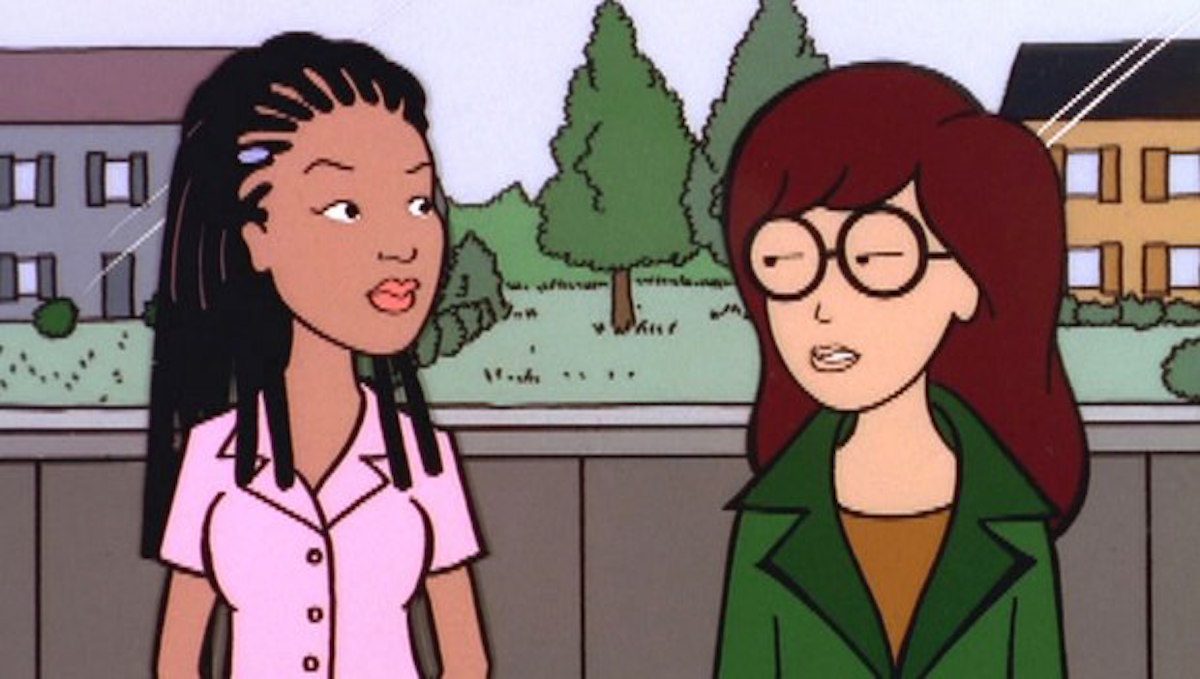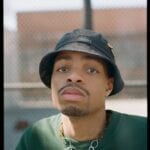As a Black gay man, the first time I saw myself onscreen wasn’t through a Black queer or Black male character. It was Mona Thorne, played by Rachel True, on UPN’s Half & Half.
About a pair of half-sisters who move into separate apartments in a building their wealthy father owns, the early aughts sitcom documents the journey of Mona and Dee Dee (Essence Atkins) becoming closer as siblings, navigating their individual careers and managing the conflicts between their meddling mothers. I resonated most with Mona because of her unique situation that dealt with family trauma as the source of her depression and desire to please everyone. Both Mona and I were dramatically affected by the ones we loved who placed us in supporting roles in our own lives. And because she never saw herself as truly worthy of happiness, Mona had an emotional and physical breakdown when it finally came. I literally cried as this story unfolded. For once, there was a character on TV that embodied my true essence—but she was a Black woman.
The way we often talk about representation onscreen for Black queer men assumes that any Black male character in a show is reflective of our existence. But these portrayals usually reflect an overly exhausted trope of performative masculinity and an unseasoned recipe for the most stereotypical, cisgender straight characters. Their storylines are often indifferent and one-dimensional, lacking any character development. Many exhibit toxic behaviours that trigger queer and femme people offscreen, like misogyny and homophobia. And though shows like Noah’s Arc, P-Valley, Empire and True Blood have done their best to give a glimpse of nuanced Black queer male representation, this still does not compare to the unbearable amount of shows that have tokenized our livelihoods or erased our footprint in entertainment altogether.
While sifting through the chaos, I’ve found an embodiment of my existence in the characters of Black women. From their mannerisms, story arcs, relationship woes and career hurdles, I have become attached to a unique mirror, one that doesn’t reflect my own specific identity, but nevertheless have significantly impacted my way of life. Over the years, I’ve witnessed how other Black queer men’s relationships to various Black woman characters on television mirror mine. I asked a few of them to reflect on their favourites and how those characters have been pivotal in their own journeys.
Empire’s Cookie Lyon

Credit: Everett Collection/CP Images
I’ve been a fan of Empire since it first premiered. When I found out that Taraji P. Henson was playing one of the lead roles, I was ecstatic. Taraji as Cookie Lyon instantly drew me in due to her huge personality and directness. From her presence whenever she walked into a room to her quick delivery in proving a point, all of those moments gave me the proper inspiration to stand in my Black queer identity. Many people may view this boisterous persona as a flaw, but it has helped me persevere, build courage and prepare myself for all the amazing opportunities that have shown up in my life. Watching how Cookie displayed her fearlessness and her vulnerability in every scene gave me the inspiration I needed in my own life. Cookie Lyon reminds me of my mother, who is my biggest support system.
—Stevie Derrick is a 29-year-old from Long Island, New York. He co-hosts the popular queer podcast, HIM.
The Parkers’ Nikki Parker
Mo’Nique’s character on UPN’s The Parkers gave me everything I needed. She was funny, boisterous, caring and unapologetically her! Honestly, Mo’Nique helped in shaping my confidence. There was rarely a moment that Nikki didn’t remind people that she was very happy with who she was—especially when it came to dating in a world that praised smaller body types and shunned bigger ones. That had an impact on how I saw my body, and others around me. She also helped shape my quick wit and humour; I’m all about a good laugh. I really had not thought about how watching these Black characters helped cultivate who I am before this. I’m happy I had that back then, and I hope, as we move forward, everyone will be able to see themselves on the screen both big and small.
—Phillip-Michael Payton is a 30-year-old fashion designer from Raleigh, North Carolina.
Living Single’s Khadijah James

Credit: Everett Collection/CP Images
I remember mornings before school, I would watch the FOX sitcom Living Single. I felt so encapsulated by the comedy and the life of these young friends working and making their own paths in New York City. The tomboyish style of Khadijah (Queen Latifah) was a great representation of gender duality. Like Khadijah, I know that I can still be myself regardless of my setting, wardrobe or hairstyle. Khadijah was independent, funny, cultured, edgy and had an entrepreneurial spirit. She worked her ass off to run Flavor Magazine. If you know, you know! In 2018, a few friends and I launched a women’s empowerment festival in Brooklyn called ENVSN, a platform built to help young women of colour thrive and grow into their best selves. I see Kadijah’s influence in my life as I strive to make change in the communities I belong to.
—Ronny Oppong, 28, originally from Columbus, Ohio, is the founder of the ENVSN Festival.
Queen Sugar’s Nova Bordelon

Credit: Everett Collection/CP Images
In Ava DuVernay’s drama series Queen Sugar on OWN, Nova Bordelon is introduced to us with one of the most tender shots I’ve ever seen on TV in which her locs are shown on her beautiful, dark-skinned back. The camera holds her, and throughout the show, Nova holds us as well. Nova (played by Rutina Wesley) came into my life at a time when my Black bisexual self was starting to be solidified. I wasn’t gender defiant by name at the time, but I was bisexual/fluid and proud of it. Nova is a rootworker, a hoodoo practitioner, a witch in that Black way. As someone who is interested in deepening their own relationship to hoodoo, I feel inspired by the way she tends to flowers and honours land. A self-proclaimed Lavender Boy/soft negro, I am.
I also see myself in the way she handles and cares for her nephew, Micah, with tenderness and grace. In my own life, I’m dedicated to teaching not only my own niblings and younger kin, but also Black youngsters in classrooms and workshops. When Micah feels unheard, he turns to Nova for counsel. And Nova, in turn, doesn’t let him forget that it’s okay to feel. Nova’s view is slightly different from the rest of the Bordelons, always providing a queer kind of possibility for Black futures. No character is without flaws, of course (and that’s word to another one of my favourites, Olivia Pope as iconically played by Kerry Washington), but I appreciate how Nova is openly bisexual and not punished by the plot for it. Nova’s story should be a notice that what lies in the creation of our futures is already found in our Black queer pasts.
—Vernon Jordan III is a 26-year-old, gender-fluid film director and teaching artist from Philadelphia.
Daria’s Jodie Landon

Credit: MTV
Daria is an iconic ass show. The MTV animated series ran for five years around the turn of the millennia (and currently on Crave in Canada). The true star, for me, is the recurring character Jodie Landon (voiced by Jessica Cydnee Jackson). In the show, Jodie expresses how, at home, she’s able to be herself and do what feels right, but at school, she is viewed as the “perfect” African-American teen. Growing up, I didn’t fully understand what she meant. But now that I’m older and find myself now working at a predominantly white PR agency, I 100 percent get it. At one point, Jodie is fed up with being the token Black kid and doesn’t want to feed into the charade any longer. When she and her boyfriend are elected homecoming king and queen Jodie realizes, as a little Black girl stares up at her while on the float, that though the lack of diversity in Lawndale can be eclipsing, she is still an inspiration to others. This prompts Jodie’s decision to attend a historically black university (HBCU) after graduating high school so that she can be around other Black students. Her parents disapprove. They believe it’s an excuse to relax—basically perpetuating the stereotype that HBCUs are significantly easier than predominantly white institutions. I came across this same roadblock when I was deciding on schools with my guidance counsellor, who thought I could do better. Much like Jodie, I didn’t want to go to school with a bunch of people that didn’t look like me or share at least some common cultural references. Jodie made sure she excelled at everything to meet her parents’ expectations, but her telling them she’d rather go to an HBCU was her taking control of her own future—not because she felt she had to, or because her parents told her to, but because she did what she thought would make her the happiest. I see myself in Jodie because I see someone who doesn’t let other people derail them from achieving their goals, both professionally and personally.
— Xavier Yarbough is a 25-year-old junior publicist from Norfolk, Virginia.
This story is published with support from the Ken Popert Media Fellowship program.


 Why you can trust Xtra
Why you can trust Xtra


